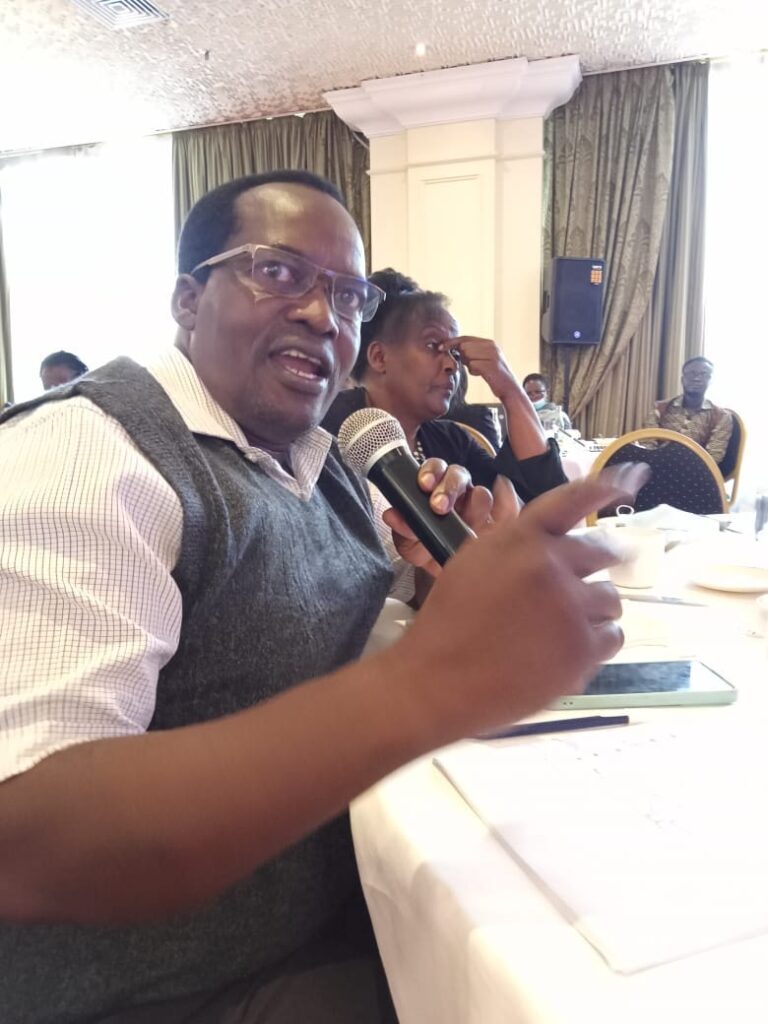The fight against disinformation has received a huge boost.
This follows an injection of Sh5 million towards telling factual stories.
The Kenya Correspondents Association (KCA) through the support from DW Akademie has identified 60 journalists to benefit from the project.
KCA is an umbrella body with membership of over 500, mostly consisting of correspondents from the rural areas of Kenya.
We have since trained 22 correspondents in Kisumu, 22 in Mombasa and 22 in Kakamega
Oloo Janak
The project ‘verification tools against disinformation in rural areas’ is aimed at strengthening the role of correspondents in fighting disinformation.
According to KCA Chairman Oloo Janak, the project being implemented in Kisumu, Kakamega and Mombasa will see production of 70 factual stories aimed at debunking disinformation in the regions.
The project begun in September 2022, and will run till March 2023.

Fellowship
The first phase involved a fellowship which saw the journalists trained and equipped with tools for debunking disinformation.
“We have since trained 22 correspondents in Kisumu, 22 in Mombasa and 22 in Kakamega,” said Janak.
After the training, the journalists pitch stories targeting debunking information within their areas.
They are then assigned mentors who take them through the production of their stories.
“We also give them some modest funding to help them with transport, communication, and other logistics that are relevant for the sourcing and production of the stories,” said Janak.
The beneficiaries would then publish their stories within the media houses where they are attached.
Apart from individuals, governments are either victims or manufacturers of disinformation, and journalists must put them to task through telling factual stories
Oloo Janak
“We want the correspondents to speak to the members of their communities, and the key people in these communities so as to understand the trends of disinformation, and be in the lead in helping with telling factual stories,” said Janak.
He added: “Every community has experience with disinformation, and this has huge negative impacts in their wellbeing. There are disinformation cases around agriculture, climate change, politics, and many other sectors which journalists as multipliers must take a lead role in debunking.”
“Apart from individuals, governments are either victims or manufacturers of disinformation, and journalists must put them to task through telling factual stories.”
Bloggers as disinformation gurus
He said many counties have been using bloggers to perpetrate disinformation, and some of these information shape opinions in the communities.
“Today we have leaders who blame the Ukraine war on for their own failures and mismanagement. Correspondents in the rural areas must have the correct tools so as help the communities,” said Janak.
In the project, 30 editors and 60 social media influencers have also been trained.
“Some of our local radio stations fall prey to disinformation by distributing unverified content from social media, or by giving audiences opportunities in their live radio shows to peddle disinformation. So it is important for editors to also understand the concept,” said Janak.
“We have already commissioned the trained correspondents to begin researching on the story ideas they have pitched,” said Janak.
